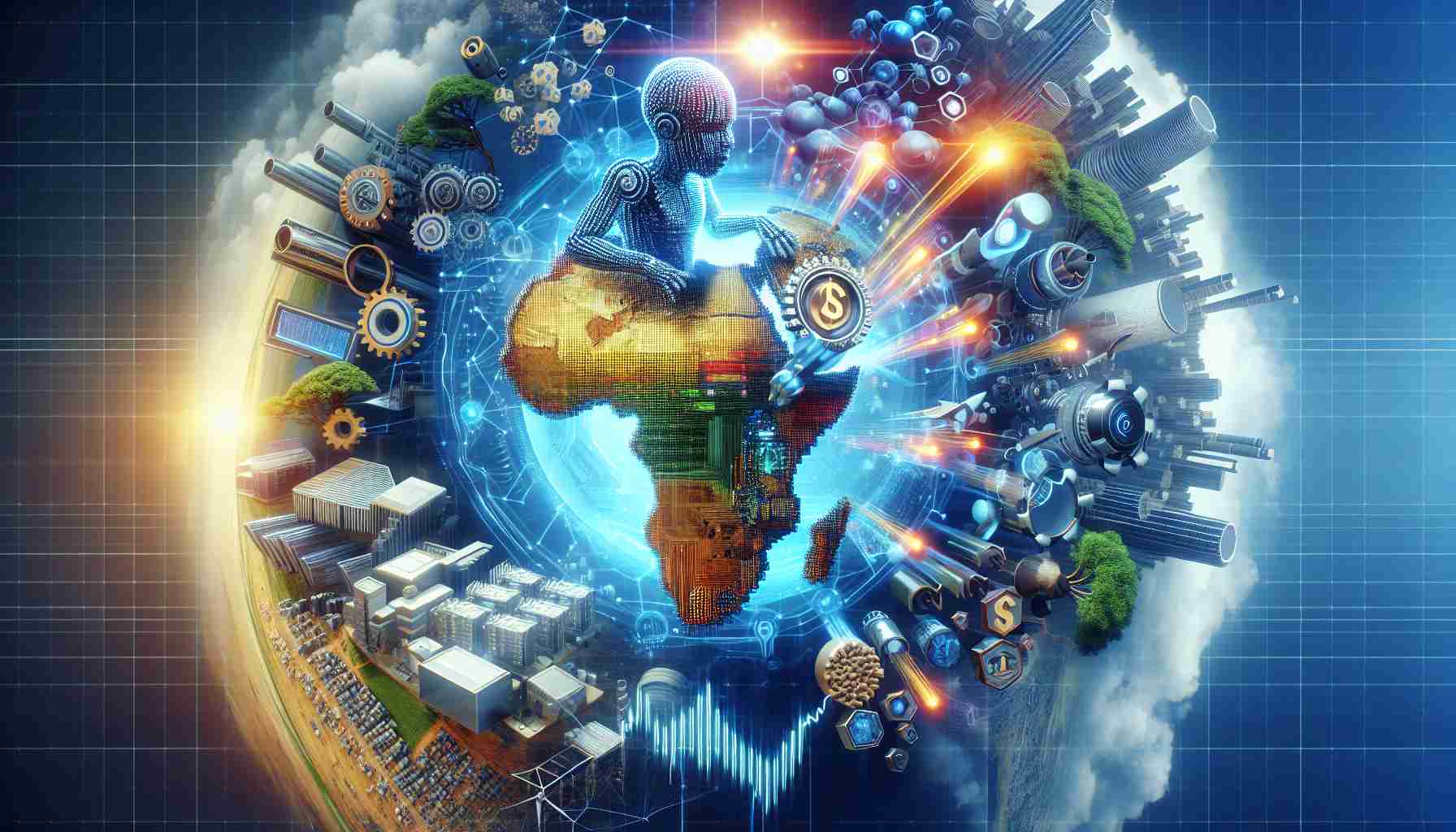Africa is on the verge of an economic transformation, with technology and artificial intelligence (AI) at the forefront. Potential investors see a treasure trove of opportunity within these sectors that could drive the continent’s economy forward in the next decade. Experts predict that tech advancements could contribute over $15 trillion to Africa’s gross domestic product (GDP).
Despite the accelerating growth in the tech and AI industries, Africa faces inherent challenges, specifically relating to its infrastructure. International experts have been working on solutions to this during the GITEX Africa 2024 expo hosted by Morocco, with participation from 130 countries worldwide. Lavinia Ramkissoon, from the United Nations University Policy Research Institute, noted at the event that AI is expected to have a significant global impact on GDP.
Ramkissoon highlighted that AI alone could account for 10% of the global output, which translates to an additional $1.5 trillion to Africa’s current $3 trillion GDP by 2023 – a considerable sum that could reshape the continent’s economy.
However, she also pointed out that only eight African countries currently have an AI strategy, which indicates that Africa still has a long journey ahead to fully capitalize on this industry.
To attract the right kind of investments, Ramkissoon emphasized the need for strategic and clear policies. She mentioned the potential of AI to reset the continent’s economies. But to make significant progress, Africa must bridge the growing digital divide that leaves many excluded and unconnected.
Trixie LohMirmand, organizer of GITEX, mentioned that African startups could increase their investment prospects by strengthening relationships with global investors and startups. Christina Yan Zhang from the Metaverse Institute in the UK identified technology access across Africa as the primary challenge, noting that resource consumption by AI must be accommodated with robust infrastructure.
Africa, attracting less than 2% of global investment capital, needs to look at skills development and retention. With a large number of African youth emigrating, addressing this “youth drain” is critical to building a high-tech digital economy infused with AI.
GITEX Africa 2024 in Morocco seeks to address these issues, including a focus on rural transformation, women in tech entrepreneurship, the fourth industrial revolution, and venture investments to propel the continent’s tech startups.
Key Questions and Answers:
– What is the predicted contribution of tech advancements to Africa’s GDP?
Tech advancements are predicted to contribute over $15 trillion to Africa’s GDP.
– What challenges does Africa face in leveraging AI and technology?
Africa faces challenges related to infrastructure, lack of AI strategies in most countries, digital divide, skill development, and retention.
– What percentage of global investment capital does Africa attract?
Africa attracts less than 2% of global investment capital.
– What was the purpose of GITEX Africa 2024?
GITEX Africa 2024 aimed to address issues related to the continent’s use of AI and technology, including rural transformation, support for women in tech, the fourth industrial revolution, and venture investments.
Advantages:
– Economic Growth: AI and technology have the potential to add $1.5 trillion to Africa’s current GDP, driving economic growth.
– Global Impact: Strategic use of AI can position Africa as a key player on the global stage.
– Job Creation: Advancements in tech industries can create numerous job opportunities, especially for the youth.
Disadvantages:
– Infrastructure Gap: Many African countries lack the requisite infrastructure to support advanced technologies and AI applications.
– Skills Shortage: There is a need to focus on skills development within the continent to retain talent and prevent brain drain.
– Investment Challenges: With relatively little global investment capital flowing into Africa, it is crucial to improve conditions to attract investors.
Key Challenges or Controversies:
– Development of AI Strategies: Only a handful of African countries have a formal AI strategy, presenting a barrier to unified progress.
– Digital Divide: There is a significant digital gap with many individuals lacking internet access, hampering widespread adoption of AI and technology.
– Resource Consumption: AI’s resource demands require robust infrastructure, which is currently insufficient in many parts of Africa.
To find out more about African tech startups, venture investments, and strategies for economic development, visiting the following website may be valuable: GITEX.
For a broader understanding of the current state and future potential of Africa’s economy and technological advancements, resources such as the African Union’s official website at AU, and websites dedicated to African news such as AllAfrica, can offer useful insights and up-to-date information.

